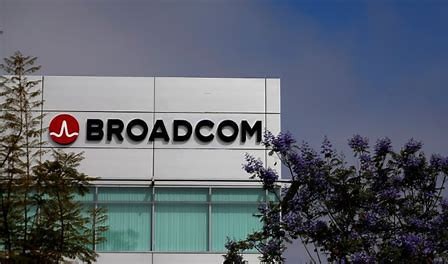FTC Shifts Focus To Defense In Meta Monopoly Trial

Table of Contents
Judge's Rulings Favor Meta
The tide seems to be turning against the FTC in the Meta monopoly trial. Several key rulings by the presiding judge have significantly weakened the commission's case, raising serious questions about its ability to prove its claims.
Dismissal of Key Claims
The judge has dismissed several crucial claims alleging anti-competitive practices by Meta, a significant blow to the FTC's overall strategy. These dismissals stem from the judge's assessment of the evidence presented and the legal arguments put forth by the FTC.
- Specific Claims Dismissed: The exact details of the dismissed claims are subject to legal confidentiality, but reports suggest that claims related to Meta's acquisition of Instagram and WhatsApp, central to the FTC's argument of monopolistic practices, have been partially or entirely dismissed.
- Judge's Reasoning: The judge's reasoning, according to legal analysts, centers around the FTC's failure to sufficiently prove that Meta engaged in anti-competitive behavior that harmed competition. The judge's opinion emphasized the burden of proof resting on the FTC under Section 2 of the Sherman Act, which prohibits monopolization and attempts to monopolize.
- Legal Ramifications: The dismissal of these key claims significantly weakens the FTC's case, potentially leading to a dismissal of the entire lawsuit or a greatly reduced scope. This sets a precedent for future antitrust cases, raising the bar for proving monopolistic practices.
- "The FTC has failed to meet its burden of proving that Meta engaged in anti-competitive conduct that harmed competition," a legal expert commented in a recent interview with Bloomberg.
Challenges to FTC's Evidence
Beyond dismissing specific claims, the judge has also raised significant concerns about the quality and sufficiency of the FTC's evidence. This further undermines the commission's ability to successfully prosecute its case.
- Evidence Challenges: The judge highlighted inconsistencies and gaps in the FTC's evidence, questioning its reliability and relevance in proving anti-competitive conduct. Specific details regarding the nature of these concerns are often kept confidential for strategic reasons.
- Burden of Proof: In antitrust cases, the FTC bears the burden of proving that Meta engaged in anti-competitive conduct and that this conduct harmed competition. The judge's scrutiny of the evidence suggests the FTC may be struggling to meet this high standard.
- Impact on the Case: The challenges to the FTC’s evidence severely limit their ability to demonstrate Meta's alleged anti-competitive behavior, making a successful prosecution significantly less likely. Links to relevant court documents, when publicly available, will be added to this article as the trial progresses.
Meta's Counteroffensive
Meta has adopted a robust and proactive legal strategy, effectively shifting the focus of the trial and putting the FTC on the defensive.
Aggressive Legal Strategy
Meta's legal team, renowned for its expertise in antitrust litigation, has aggressively challenged the FTC's claims at every turn.
- Specific Arguments: Meta's defense hinges on the argument that it operates in a highly competitive market, facing significant challenges from other social media platforms. They counter that their acquisitions were pro-competitive and enhanced innovation.
- Legal Team: Meta has assembled a team of top-tier lawyers with extensive experience in complex antitrust litigation, ensuring a formidable legal defense.
- Financial Implications: The legal battle represents a significant financial investment for Meta. However, the potential consequences of an adverse ruling far outweigh these costs.
"Our actions have consistently fostered competition and innovation, and we are confident that the evidence will demonstrate that," stated a Meta spokesperson in a press release.
Highlighting Innovation and Competition
A core component of Meta's defense emphasizes its ongoing innovation and the highly competitive nature of the social media landscape.
- Innovation Examples: Meta points to continued development in areas like augmented and virtual reality, messaging platforms, and advertising technology as evidence of ongoing innovation and competition.
- Market Competition: Meta highlights the presence of strong competitors such as TikTok and Snapchat, arguing that their market share is far from monopolistic. Statistics on user engagement, market share, and revenue growth are regularly cited.
- Broader Implications: Meta's argument underscores the tension between antitrust enforcement and the promotion of technological innovation. Aggressive antitrust actions, the company argues, could stifle innovation in the rapidly evolving tech industry.
Implications for Future Antitrust Cases
The outcome of the FTC Meta monopoly trial will have significant repercussions for future antitrust lawsuits targeting large technology companies.
Setting a Precedent
The case is setting crucial precedents both procedurally and substantively.
- Legal Procedure: The judge's rulings on evidence admissibility and the burden of proof will influence how similar cases are handled in the future.
- Antitrust Law Interpretation: The interpretation of antitrust laws concerning mergers and acquisitions in the digital economy will likely be shaped by the outcome.
- Impact on Tech Giants: Companies like Google, Apple, and Amazon, facing similar antitrust scrutiny, will closely monitor the trial's outcome for its impact on their own legal battles. Experts predict this will affect the boldness of future acquisitions.
Shift in Regulatory Approach
The FTC's defensive posture raises questions about its future approach to regulating large tech companies.
- Potential Changes: The FTC may need to reassess its enforcement strategy, potentially requiring more robust evidence gathering and a more refined legal approach to succeed in future antitrust cases.
- Political Implications: The outcome will have significant political repercussions, potentially influencing future regulatory actions and legislation related to antitrust enforcement.
- Legislative Changes: Depending on the outcome, there could be calls for legislative changes to strengthen or clarify antitrust laws concerning large technology companies. The Department of Justice’s stance on the matter will also be a crucial factor in future regulatory policy.
Conclusion
The FTC's shift to a defensive stance in the Meta monopoly trial is a significant development with far-reaching consequences. The judge's rulings and Meta's aggressive counteroffensive have created uncertainty about the outcome and established precedents for future cases. Staying informed about the developments in the FTC Meta Monopoly Trial is crucial for understanding the evolving regulatory landscape for tech giants and its implications for consumers. Further developments in this ongoing FTC Meta monopoly trial, and related cases against other Big Tech companies, will undoubtedly shape the future of antitrust law and competition in the digital age. Keep an eye on future updates on this crucial Meta monopoly trial for critical updates and analysis.

Featured Posts
-
 Broadcoms V Mware Acquisition At And T Reveals A Staggering 1 050 Price Jump
May 19, 2025
Broadcoms V Mware Acquisition At And T Reveals A Staggering 1 050 Price Jump
May 19, 2025 -
 The Huskies Of Honor Welcoming Paige Bueckers
May 19, 2025
The Huskies Of Honor Welcoming Paige Bueckers
May 19, 2025 -
 Zheneva Gotovitsya K Vstreche Gensek Oon I Kiprskiy Vopros
May 19, 2025
Zheneva Gotovitsya K Vstreche Gensek Oon I Kiprskiy Vopros
May 19, 2025 -
 Ufc Vegas 106 In Depth Analysis Of Burns Vs Morales And Fight Card Odds
May 19, 2025
Ufc Vegas 106 In Depth Analysis Of Burns Vs Morales And Fight Card Odds
May 19, 2025 -
 Espana En Eurovision Cuando Estuvo Mas Cerca De La Victoria
May 19, 2025
Espana En Eurovision Cuando Estuvo Mas Cerca De La Victoria
May 19, 2025
